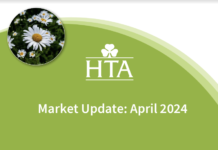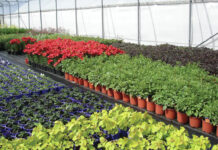





Link to this: Individually | In context | Oireachtas source
1. To ask the Minister for Agriculture, Food and the Marine the measures which will be taken to meet the challenge of addressing the pressing issue of farm incomes in view of the current crisis in farm incomes and severe market volatility across most sectors; and if he will make a statement on the matter. [28360/17]





Link to this: Individually | In context | Oireachtas source
I congratulate the Minister of State, Deputy Andrew Doyle, on retaining his post. We have debates and disagreements in the Chamber at times, but I think his appointment is merited and I wish him well in continuing in the role.
My question is particularly in light of the recent Teagasc farm income survey report, which highlights a 10% reduction in average farm incomes last year. What measures do the Minister and the Minister of State plan to take to address the issue of struggling incomes in the farming sector and, in particular, what measures will be taken to protect the primary producer in the food chain?





Link to this: Individually | In context | Oireachtas source
I thank Deputy McConalogue for his sincere best wishes. I hope we can continue to have a cordial, if sometimes robust, exchange. I apologise on behalf of my colleague, the Minister, Deputy Michael Creed. He drew the short straw and is on a trade mission in the United States and Mexico. I got the more important weekly job, where we engage with our colleagues across the floor. This is my first time taking all the parliamentary questions, so if my timing is not perfect, the Ceann Comhairle might give me a little bit of latitude.


Link to this: Individually | In context | Oireachtas source
I do not know about that.





Link to this: Individually | In context | Oireachtas source
I have only been here for ten years, but I am still learning.
Food Wise 2025, the new ten-year strategy for the agrifood sector, was published in July 2015. It includes more than 400 specific recommendations, spread across the cross-cutting themes of sustainability, innovation, human capital, market development and competitiveness, as well as specific sectoral recommendations. The implementation process for any strategy is vital for its success. The Minister, Deputy Michael Creed, chairs the Food Wise high level implementation committee, with high level representatives from all the relevant Departments and State agencies. The committee reviews progress on detailed actions on a quarterly basis in order to identify and solve problems quickly. Stakeholders regularly present to the committee meetings on their priorities for particular themes or sectors. We will be publishing Steps to Success 2017, the second progress report, next month.
Any concerns on the impact on the agrifood sector are at the top of the Government’s Brexit agenda. Our ongoing consultation with stakeholders, together with our engagement with UK, Northern Ireland and EU counterparts, will be informed by the need to have the implications for the agrifood sector understood and taken account of as the negotiations unfold. In light of the UK vote to leave the EU, Brexit has been included as a standard item on the agenda of each meeting of the high level implementation committee. It is clear that driving the implementation of the Food Wise recommendations, in particular those related to market development, competitiveness and innovation, will assume even greater importance in light of the UK decision. My Department and State agencies are working together to ensure that the short-term and long-term impacts of Brexit are taken into consideration and that appropriate supports are in place to help the sector to respond and adapt to the new realities.
On farm incomes and volatility, Teagasc’s national farm survey of 2016 showed average farm income of €24,000, a 9% decrease over 2015. Average farm income has been relatively stable over the last few years, fluctuating between €24,000 and €26,000.
Additional information not given on the floor of the House
There are significant differences in farm income depending on the farming system and size of farm. It should also be borne in mind that over 60% of the farms represented by the national farm survey are classified as part-time, based on labour input required. On half of farms, either the holder or spouse or both have off-farm employment.
Ireland is a small, open economy which exports the vast bulk of its agricultural commodities and, therefore, will always feel the effects of volatility on world markets. However, there are measures in place to help Irish farmers through these periods. I believe that moving up the value chain where possible, in terms of the type of products sold and how they are produced, is an important insulation against volatility. The Food Wise strategy contains detailed recommendations aimed at improving value added and productivity at farm and food industry level through a focus on sustainability, efficiency, knowledge transfer and innovation.
It has been one of my priorities to address the impact of the change in the sterling exchange rate and lower commodity prices in some agriculture sectors. The agriculture cashflow support loan scheme was developed by my Department in co-operation with the Strategic Banking Corporation of Ireland, SBCI, making €150 million available to farmers at interest rates of 2.95%. The loan scheme, distributed and administered through the commercial banks, provides farmers with a low-cost, flexible source of working capital and will allow farmers to pay down more expensive forms of short-term debt, ensuring the ongoing financial sustainability of viable farming enterprises.
The scheme was launched on 31 January and, by the beginning of March, all of the participating banks had reported that their funds were committed. The SBCI reported that €60.2 million has been drawn down by farmers to the end of April. The average loan size is €32,000, with more than half the loans being advanced for terms of four years or more. I am pleased at the very positive reaction by farmers to the scheme, which has proven that significant demand exists for low-cost flexible finance. I have met with the chief executives of the participating banks to discuss this and other access to finance issues relating to the agrifood sector. I have asked the banks to respond positively to the demand that has been demonstrated by reducing interest rates and providing more flexible terms for cashflow loans in the future.
My Department will continue to engage with the Department of Finance on key agri-taxation policy objectives, including responses to income and price volatility. Risk management is one of the topics covered by knowledge transfer groups. Animal disease risks are covered by the targeted animal health and welfare advisory measure. Fixed price contracts are increasingly becoming a feature of the relationship between producers and processors in the dairy sector, with numerous milk purchasers offering such contracts, which provide producers with the opportunity to lock in prices over the medium term, taking costs of production into account. Such relationships are a welcome development in terms of their potential to mitigate volatility.
I am confident that my Department is taking every step to support measures which mitigate price volatility and improve competitiveness in the sector.





Link to this: Individually | In context | Oireachtas source
The Minister of State referred to the Teagasc farm survey. As it shows, farming is a very difficult career. It is difficult for farmers across the various sectors to make a living and to keep a family. We see that almost 40% of farms have an average income of less than €10,000. On sheep and cattle-rearing farms, the net income is the single farm payment from Europe, and incomes were down for dairy and tillage over the past year as well. We find that there is increased volatility in respect of farm incomes and product prices, in particular. It should be Government policy and EU policy to try to ensure the agriculture sector across Europe and, in particular in our country, is underpinned by farmers getting a fair price for quality produce. Farmers are producing quality produce to the highest standards but the price is not there. Could the Minister of State say what initiatives he and the Minister have taken to ensure we can grow agriculture based on farmers being properly paid for what they produce?





Link to this: Individually | In context | Oireachtas source
I am acutely aware of it. One perhaps ironic fact that emerged from the statistics in the survey was that the reduction between 2015 to 2016 was almost entirely in the dairy sector, which represents 19% of all farms. Income has gone from an average of €62,000 to €51,000, whereas the other sectors are stable. It is hard to believe, with the exception of tillage, that is the case. Tillage, or arable, farming has taken a significant drop. It represents 9% of farms, and I think we are all acutely aware of it. There have been tools, such as the agri-cashflow, which have tried to help people through it. In response to the Deputy’s question, a fair price for a fair product is important. As a farmer, I understand this as well as anyone. Commissioner Phil Hogan is planning to present a report with a recommendation for EU-wide legislation on fair trade practices later this year. I have been advocating for that since I came into this House. I started off with the fruit and vegetable sector, the horticulture sector, which had perishable products often being sold through a producer group to domestic retailers, and it was suffering. We must continue to ensure we advocate for that. A report is due from the Competition and Consumer Protection Commission on how that fair trade legislation is working. That also needs to be reviewed in terms of taking new measures, if needs be, to strengthen that. It is something that we would want also.





Link to this: Individually | In context | Oireachtas source
The introduction of a fair trade baseline to tackle unfair trading practices in Europe is crucial.
Fianna Fáil has taken its proposals to Europe and is continuing to push them. It is key that at European level we see progress in that regard.
In the Minister of State’s previous reply, he also referred to Food Wise 2025 which my party certainly supports, albeit we feel it needs to be reviewed to meet the challenges of Brexit. Food Wise 2025 looks at increasing agrifood exports from €11 billion to €19 billion, but the following is also key. While overall production needs to increase and is beneficial for the country, we also need to see that benefitting the farmers and those who are driving that strategy and driving that projected increase in exports. That means fair prices. It also means that we see proper support from the Government for schemes, in particular, the rural development programme I have mentioned, to ensure that the spending is at committed levels. I ask the Minister of State about the funding of the rural development programme and the steps the Government is taking to ensuring the CAP is maintained, at a minimum at its current level, in upcoming negotiations and address what has been a very slow roll-out by the Department of some of the rural development programme funds.
4:00 pm





Link to this: Individually | In context | Oireachtas source
We are extending into matters that will be raised in further questions with regard to the CAP and the CAP fund. If the Deputy will be here, we will deal with that then.
I agree that if one will grow agri-production from €11 billion to €19 billion and primary producers do not feel that they have an interest, skin in the game and a viable future, one does not have any other industry. I know that from my background at the coalface. It is really important that we reassure: that is the purpose. It was Deputy McConalogue’s colleague, the then Minister of State, Deputy Brendan Smith, who brought in Food Harvest 2020. It is important that we build on that continuous process to engage, through the various different beef and dairy forums, to build this understanding between all players in each sector and then collectively as a sector itself.










